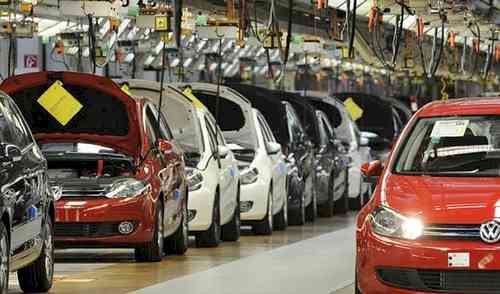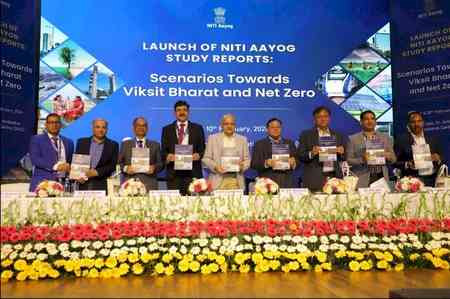India's battery storage operations become profitable for 1st time in 2024: Report
India's battery energy storage systems (BESS) operating without fixed contracts – known as merchant BESS – turned profitable for the first time in 2024 and new battery projects commissioned in 2025 could deliver internal rates of return (IRR) of 17 per cent by operating in power exchanges, due to potential fall in upfront costs, a report said on Tuesday.

New Delhi, Aug 5 (IANS) India's battery energy storage systems (BESS) operating without fixed contracts – known as merchant BESS – turned profitable for the first time in 2024 and new battery projects commissioned in 2025 could deliver internal rates of return (IRR) of 17 per cent by operating in power exchanges, due to potential fall in upfront costs, a report said on Tuesday.
Falling battery costs and higher earnings from volatile power markets drove this shift, Ember, an energy think tank, said in its report.
According to the report, battery costs have declined by around 80 per cent over the past decade to Rs 1.7 million per megawatt-hour (MWh) in 2025 from Rs 7.9 million/MWh in 2015.
At the same time, potential revenues from market participation have increased fivefold in the same period to Rs 2.4 million/MWh in 2025 from INR 0.5 million/MWh in 2015.
As a result, in 2024, merchant BESS revenues surpassed costs for the first time, making it a bankable electricity grid asset, the report stated.
“Merchant BESS has often been viewed as a low-return investment. But the changing dynamics of the wholesale power market, with rising price volatility, coupled with falling battery costs, have made it a commercially viable investment opportunity today,” said Duttatreya Das, energy analyst at Ember.
“Battery systems charge when power is cheap and abundant -- typically during sunny hours -- and sell electricity back to the grid when demand surges and prices peak, making it well-suited to manage price volatility and generate handsome revenues while doing so,” he added.
As per the report, the peak prices are reaching new highs in the day-ahead market (DAM) segment of power exchanges, while troughs are getting deeper.
This increased price volatility in the day-ahead market in recent years has created more opportunities for merchant batteries to create value.
As the electricity prices nearly hit the current cap of Rs 10/kilowatt-hour (kWh) in one out of every six hours between 2022 and 2024. Similarly, average midday power prices fell nearly 20 per cent from 2022 to 2024 during the summer months, the report highlighted.
According to the report, the power prices are likely to move on the exchanges, forecasting that by participating in DAM alone, merchant BESS investments can offer an internal rate of return of up to 17 per cent from an investment made in 2025.
“There are multiple use cases for batteries: participation in the merchant market is one that’s been somewhat under-appreciated till now,” said Satyadeep Jain, Director - Equity Research at Ambit Private Limited.
--IANS
aps/na



 IANS
IANS 










